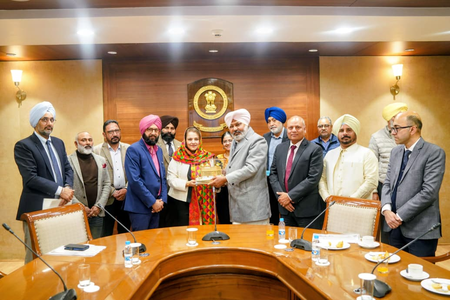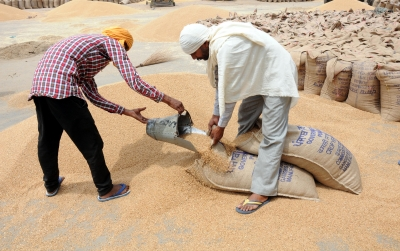
New Delhi, Jan 17 (IANS) A panel of industry experts and retired bureaucrats has called for urgent policy intervention to raise import duties on primary and downstream aluminium products to 10 per cent and impose a 7.5 per cent duty on aluminium scrap to check the surge in cheap imports coming into the country.
The step is seen in keeping with the approach adopted towards other key non-ferrous metals such as zinc, tin and lead.
Speaking at the webinar, ‘Advancing Aluminium for Atmanirbhar Bharat: Key Imperatives’, organised by Bureaucrats India, the panel said these measures are seen as critical for mitigating the surge in imports, which currently account for 56 per cent of domestic demand, and addressing the growing threat of India becoming a dumping ground for low-quality aluminium.
With import dependency on the rise, the panel warned of severe consequences for the country’s economic self-reliance and sustainability goals.
Jayadev Sarangi, a retired IAS officer, said, “India’s aluminium sector is at a critical juncture. Despite having one of the world’s most integrated aluminium value chains, our reliance on imports and scrap, projected to rise to 66 per cent by FY2025, poses a severe threat to economic self-reliance and Net Zero ambitions. Strategic reforms such as higher duties up to 10 per cent on imports and 7.5 per cent on scrap are imperative to protect domestic manufacturers from unfair competition and sustain our global competitiveness.”
Binod K. Singh, a former IRS officer, said: “The aluminium sector is the backbone of critical industries like infrastructure, renewable energy, defence, and electric vehicles. Its significance goes beyond production, with over 8 lakh jobs created and 4,000 SMEs supported in downstream industries. Flooding our market with low-quality and carbon-intensive aluminium not only impedes domestic growth and investments but also threatens key national projects such as Bharatmala and the 500 GW renewable energy target for 2030. Without raising duties on imports by 10 per cent and scrap by 7.5 per cent among other policy interventions, we risk undermining our progress.”
Deba R. Mohanty, vice president at the Society for the Study of Peace and Conflict, said: “Aluminium is central to national security and economic growth. Boosting domestic production is indispensable for meeting rising demand, projected to reach 9-10 MTPA by 2030, and for fostering defence self-reliance. By implementing higher duties on scrap imports, we can not only secure our industrial future but also support India’s transition to a circular economy.”
The panellists collectively urged the government to adopt these strategic policy changes to combat unfair trade practices, strengthen domestic production, and align the aluminium sector with the vision of Atmanirbhar Bharat.
–IANS
sps/dpb




